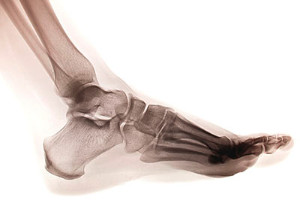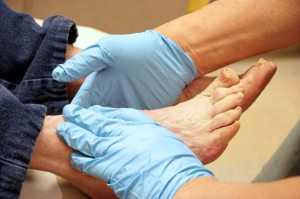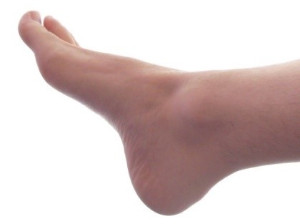Items filtered by date: April 2017
Bulls’ Payne again suffers foot injury
 Chicago Bulls' guard Cameron Payne, since being traded from the Oklahoma Thunder last year, is still having right foot problems. Last summer Payne was having pain in his foot, which eventually led to stress fracture surgery. Since the surgery Payne’s foot has been on the fritz. In training camp, he aggravated the surgical screw in his foot. Though he didn’t have a second surgery after this incident, the pain had lingered. Being that Payne has only been with the Bulls since February 23, he has been working overtime learning the offense. The pain has returned and now he’s back on the bench. In his own words, “I just need to take a little time off it.”
Chicago Bulls' guard Cameron Payne, since being traded from the Oklahoma Thunder last year, is still having right foot problems. Last summer Payne was having pain in his foot, which eventually led to stress fracture surgery. Since the surgery Payne’s foot has been on the fritz. In training camp, he aggravated the surgical screw in his foot. Though he didn’t have a second surgery after this incident, the pain had lingered. Being that Payne has only been with the Bulls since February 23, he has been working overtime learning the offense. The pain has returned and now he’s back on the bench. In his own words, “I just need to take a little time off it.”
Activities where too much pressure is put on the feet can cause stress fractures. To learn more, contact Dr. Ronald Sheppard from Warren-Watchung Podiatry Center. Our doctor can provide the care you need to keep your pain free and on your feet.
Dealing with Stress Fractures of the Foot and Ankle
Stress fractures occur in the foot and ankle when muscles in these areas weaken from too much or too little use. The feet and ankles then lose support when walking or running from the impact of the ground. Since there is no protection, the bones receive the full impact of each step. Stress on the feet can cause cracks to form in the bones, thus creating stress fractures.
What Are Stress Fractures?
Stress fractures occur frequently in individuals whose daily activities cause great impact on the feet and ankles. Stress factors are most common among:
- Runners
- People affected with Osteoporosis
- Tennis or basketball players
- Gymnasts
- High impact workouts
Symptoms
Pain from the fractures occur in the area of the fractures and can be constant or intermittent. It will often cause sharp or dull pain with swelling and tenderness. Engaging in any kind of activity which involves high impact will aggravate pain.
If you have any questions please feel free to contact one of our offices located in Marlboro and Watchung, NJ . We offer the newest diagnostic and treatment technologies for all your foot and ankle needs.
Read more about Dealing with Stress Fractures of the Foot and AnkleEffects of Diabetes on the Feet
 For those who have been diagnosed with diabetes, or those with family members who have diabetes, taking care of your feet is something that should be taken very seriously. Because of the lack of circulation in the feet and legs, numbness or loss of feeling can occur. This could prevent detection of problems such as an ulcer. That, coupled with inordinately slow healing, can cause infections to persist, spread, and even lead to amputation. Make sure to look out for signs of foot problems. If you have numbness or loss of feeling, sores, or any type of slow-healing wound, see a doctor immediately.
For those who have been diagnosed with diabetes, or those with family members who have diabetes, taking care of your feet is something that should be taken very seriously. Because of the lack of circulation in the feet and legs, numbness or loss of feeling can occur. This could prevent detection of problems such as an ulcer. That, coupled with inordinately slow healing, can cause infections to persist, spread, and even lead to amputation. Make sure to look out for signs of foot problems. If you have numbness or loss of feeling, sores, or any type of slow-healing wound, see a doctor immediately.
Diabetic foot care is important in preventing foot ailments such as ulcers. If you are suffering from diabetes or have any other concerns about your feet, contact Dr. Ronald Sheppard from Warren-Watchung Podiatry Center. Our doctor can provide the care you need to keep you pain-free and on your feet.
Diabetic Foot Care
Diabetes affects millions of people every year. The condition can damage blood vessels in many parts of the body, especially the feet. Because of this, taking care of your feet is essential if you have diabetes, and having a podiatrist help monitor your foot health is highly recommended.
The Importance of Caring for Your Feet
- Routinely inspect your feet for bruises or sores.
- Wear socks that fit your feet comfortably.
- Wear comfortable shoes that provide adequate support.
Patients with diabetes should have their doctor monitor their blood levels, as blood sugar levels play such a huge role in diabetic care. Monitoring these levels on a regular basis is highly advised.
It is always best to inform your healthcare professional of any concerns you may have regarding your feet, especially for diabetic patients. Early treatment and routine foot examinations are keys to maintaining proper health, especially because severe complications can arise if proper treatment is not applied.
If you have any questions please feel free to contact one of our offices located in Marlboro and Watchung, NJ . We offer the newest diagnostic and treatment technologies for all your foot and ankle needs.
Anxiety and Depression May Contribute to Hyperhidrosis
Hyperhidrosis is identified as a medical condition which leads to overactive sweat glands, also associated with higher rates of anxiety and even depression in those who are affected. According to a study by the American Academy of Dermatology (AAD), “21 percent of people with hyperhidrosis had anxiety, and 27 percent of people with this ailment had depression.” Hyperhidrosis can occur regardless of factors such as temperature, and can occur in any region of our body. However, in most cases it typically affects the feet, hands, and underarms. Nearly 3 percent of the population is afflicted by this condition.
If you are suffering from hyperhidrosis contact Dr. Ronald Sheppard of Warren-Watchung Podiatry Center. Our doctor can provide the care you need to attend to all of your foot and ankle needs.
Hyperhidrosis of the Feet
Hyperhidrosis is a rare disorder that can cause people to have excessive sweating of their feet. This can usually occur all on its own without rigorous activity involved. People who suffer from hyperhidrosis may also experience sweaty palms.
Although it is said that sweating is a healthy process meant to cool down the body temperature and to maintain a proper internal temperature, hyperhidrosis may prove to be a huge hindrance on a person’s everyday life.
Plantar hyperhidrosis is considered to be the main form of hyperhidrosis. Secondary hyperhidrosis can refer to sweating that occurs in areas other than the feet or hands and armpits. Often this may be a sign of it being related to another medical condition such as menopause, hyperthyroidism and even Parkinson’s disease.
In order to alleviate this condition, it is important to see your doctor so that they may prescribe the necessary medications so that you can begin to live a normal life again. If this is left untreated, it is said that it will persist throughout an individual’s life.
A last resort approach would be surgery, but it is best to speak with your doctor to find out what may be the best treatment for you.
If you have any questions please feel free to contact one of our offices located in Marlboro and Watchung, NJ . We offer the newest diagnostic and treatment technologies for all your foot and ankle needs.
Study Finds Correlation Between Foot Pain and BMI
 In a recent study conducted in the Boston area, correlations between obesity, foot pain, and foot disorders were investigated. The sample size of the study was 2445 men and women with an average age of 68. In men, severe obesity, defined as having a body mass index (BMI) of 35 kg/m^2 or more, was found to be associated with foot pain. For women, both moderate (30-34.99) and severe obesity were associated with foot pain. The general conclusion of the study was that regardless of foot posture and dynamic foot function, as one’s BMI increased the likelihood of foot pain increased as well.
In a recent study conducted in the Boston area, correlations between obesity, foot pain, and foot disorders were investigated. The sample size of the study was 2445 men and women with an average age of 68. In men, severe obesity, defined as having a body mass index (BMI) of 35 kg/m^2 or more, was found to be associated with foot pain. For women, both moderate (30-34.99) and severe obesity were associated with foot pain. The general conclusion of the study was that regardless of foot posture and dynamic foot function, as one’s BMI increased the likelihood of foot pain increased as well.
Obesity has become very problematic at this point in time and can have extremely negative effects on the feet. If you’re an obese individual and are concerned about your feet, contact Dr. Ronald Sheppard from Warren-Watchung Podiatry Center. Our doctor can provide the care you need to keep you pain-free and on your feet.
Obesity and Your Feet
Since your feet are what support your entire weight when standing, any additional weight can result in pain and swelling. Being overweight is one of the main contributors to foot complications.
Problems & Complications
Extra Weight – Even putting on just a few extra pounds could create serious complications for your feet. As your weight increases, your balance and body will shift, creating new stresses on your feet. This uneven weight distribution can cause pain, even while doing the simplest tasks, such as walking.
Diabetes – People who are overweight are at serious risk of developing type-2 diabetes, which has a drastic impact on the health of your feet. As you get older, your diabetes might worsen, which could lead to loss of feeling in your feet, sores, and bruises. You could also become more prone to various infections.
Plantar fasciitis – Pressure and stress that is placed on muscles, joints, and tendons can trigger plantar fasciitis, which is an inflammation of tissue that forms along the bottom of the foot.
If you have any questions please feel free to contact one of our offices located in Marlboro and Watchung, NJ . We offer the newest diagnostic and treatment technologies for all your foot and ankle needs.

